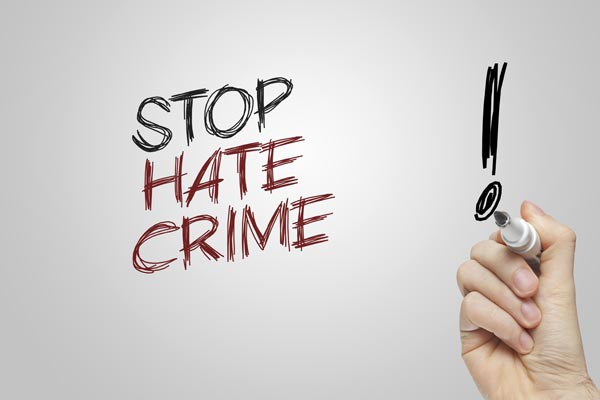Published: April 29, 2025
Last Updated: April 29, 2025

Hate crimes represent one of the most troubling forms of criminal activity in any society. These offences go beyond mere acts of violence or vandalism—they are fueled by deep-seated prejudice and bias against an individual or group based on attributes such as race, religion, nationality, ethnicity, gender, or sexual orientation. In Dubai, where the legal system upholds justice, tolerance, and public order, hate crimes are taken seriously, and the penalties are equally stringent.
We believe it’s essential for individuals and organizations to understand the nature of hate crimes, their impact on victims and communities, and the legal consequences they entail.
When someone commits an offence—such as assault, harassment, property damage, or threats—driven by prejudice or hatred toward a victim's protected trait, it's known as a hate crime. The intent behind a hate crime is the primary factor that sets it apart from other offences.
For instance, an assault goes beyond ordinary assault and is classified as a hate crime if the victim is attacked merely because of their ethnicity or religious clothing. In addition to causing physical harm, these offences also instigate greater discrimination, create fear, and split communities.
The UAE has explicit rules that make hate speech, discrimination, and violent acts motivated by intolerance illegal. One important piece of legislation in this area is Federal Decree-Law No. 2 of 2015 on Combating Discrimination and Hatred. It forbids discrimination in speech, writing, or any other kind of expression based on religion, caste, doctrine, race, colour, or ethnic origin.
Additionally, the law makes inciting hatred a crime and stipulates harsh punishments, including jail time and large fines. Depending on the seriousness of the offence, acts that foment religious hatred or encourage discrimination can result in penalties of up to AED 2 million and jail sentences of up to 10 years.
Furthermore, the UAE's Cybercrime Law also makes cyber hate crimes—those carried out through electronic platforms or social media—prosecutionable. Disseminating hateful content online can lead to serious financial penalties, deportation (for non-citizens), and jail.
To prosecute hate crimes, it is essential to comprehend the purpose behind the crime. Criminal lawyers in Dubai must show that the perpetrator's actions were motivated by prejudice and specifically targeted the victim. This is frequently proven by evidence like previous threats, social media activity, connections to extremist organizations, or racist statements made during the event.
Courts and law enforcement consider hate crimes to be aggravating circumstances, which frequently leads to heavier sentences. The goal of the judicial system is to make it abundantly evident that hatred and bigotry are unacceptable in UAE society.
Professional assistance is necessary to navigate the complexities of the law, regardless of whether you are a victim seeking justice or someone who has been accused of a hate crime. A criminal attorney can offer crucial legal assistance, whether it is in constructing a compelling defence or making sure that victims' rights are respected at every stage of the legal proceedings.
In addition to being knowledgeable about both local and federal legislation, a premier criminal law firm in Dubai has handled delicate cases including prejudice, discrimination, and public safety. If the intent behind the crime is not proven, attorneys may also bargain with prosecutors, ask for fewer charges, or contest the evidence.
Conclusion
The social cohesion of multicultural societies such as Dubai is weakened by hate crimes. Fostering tolerance and justice requires an understanding of the motivations underlying these offences as well as the severe consequences they bear. Speaking with Al Adl Lawyers can have a big impact on the course of your case if you or someone you know is impacted by a hate crime, either as an accused person or as a victim.


